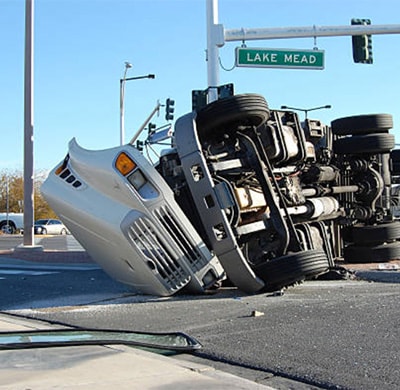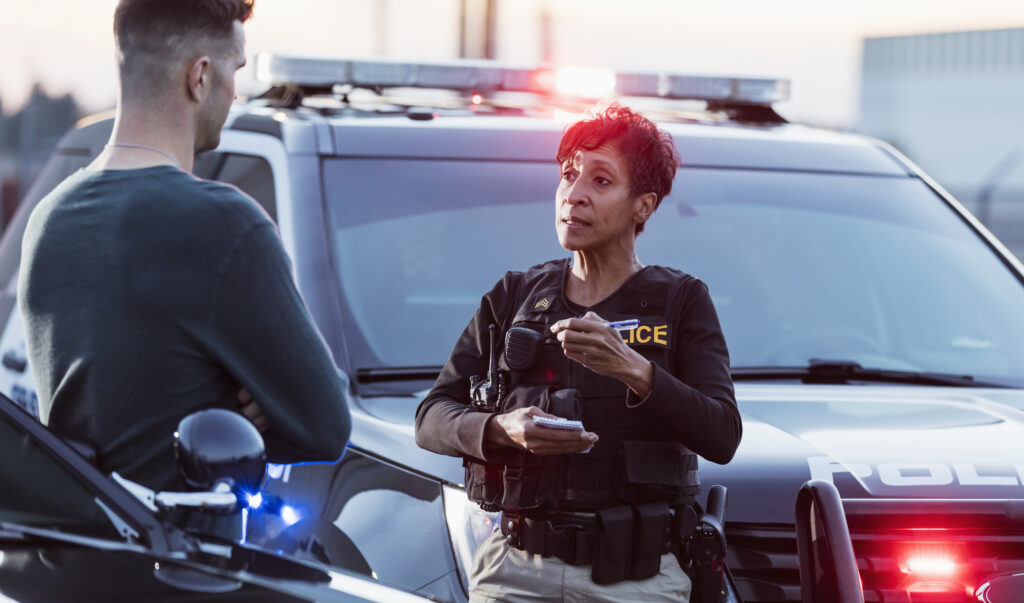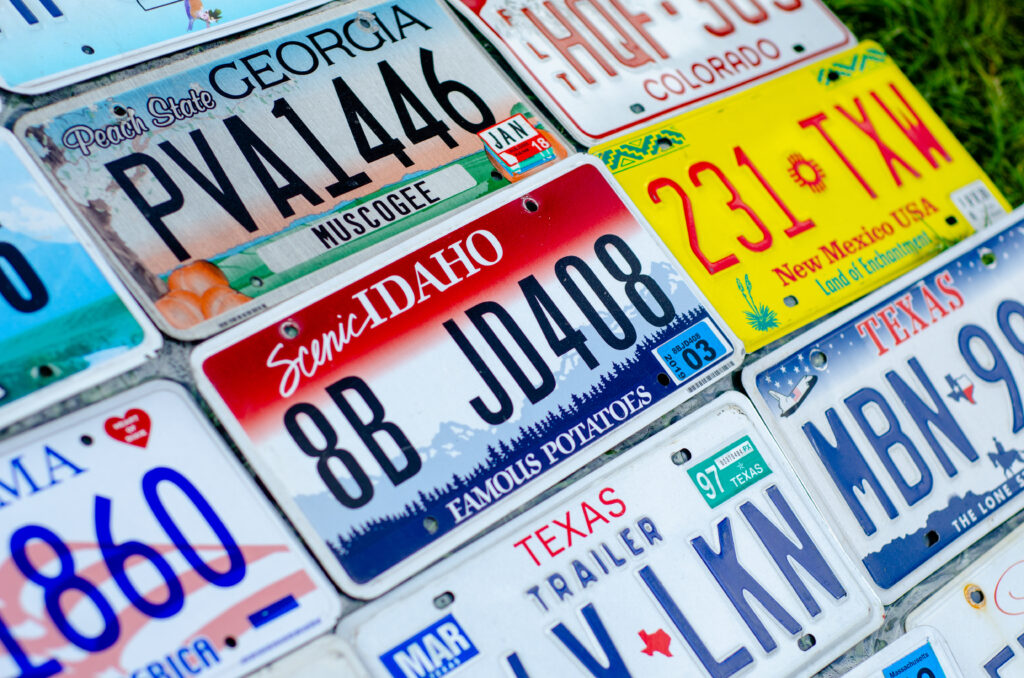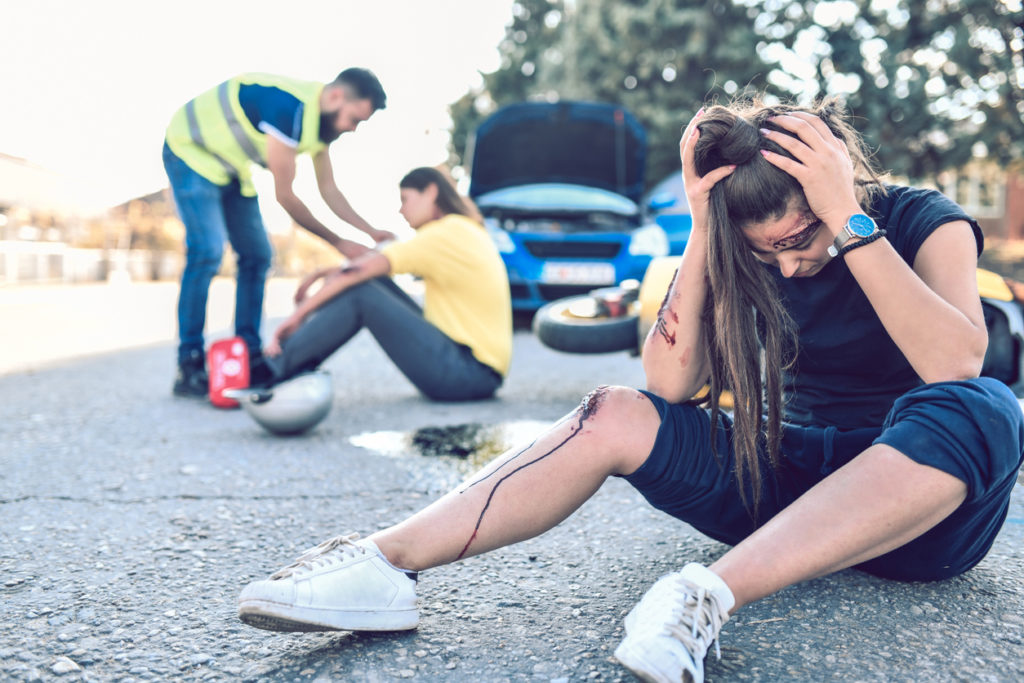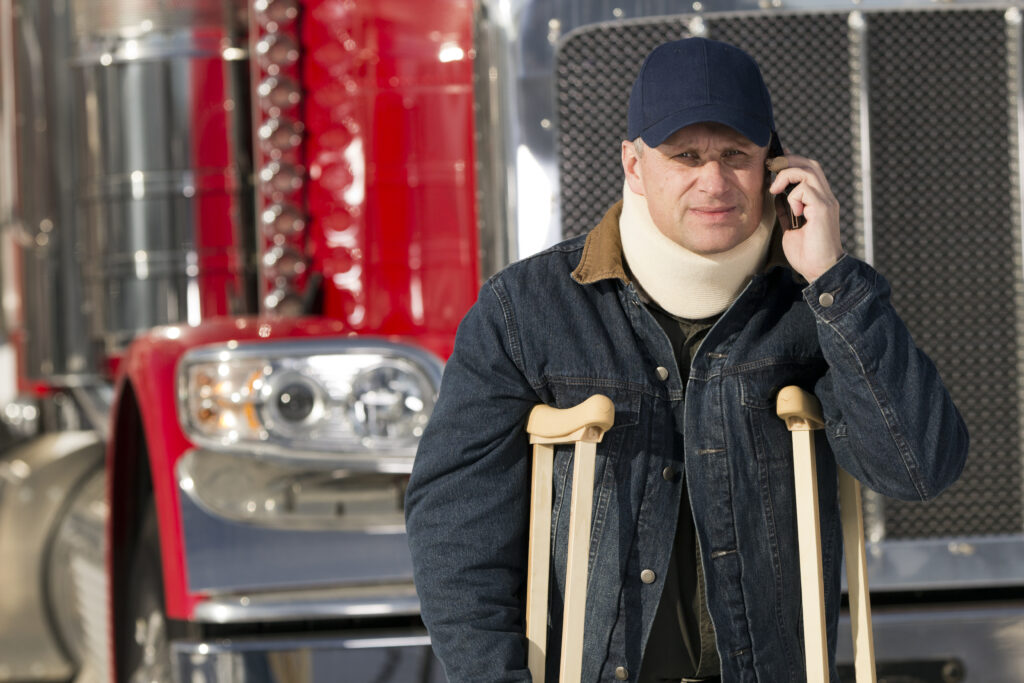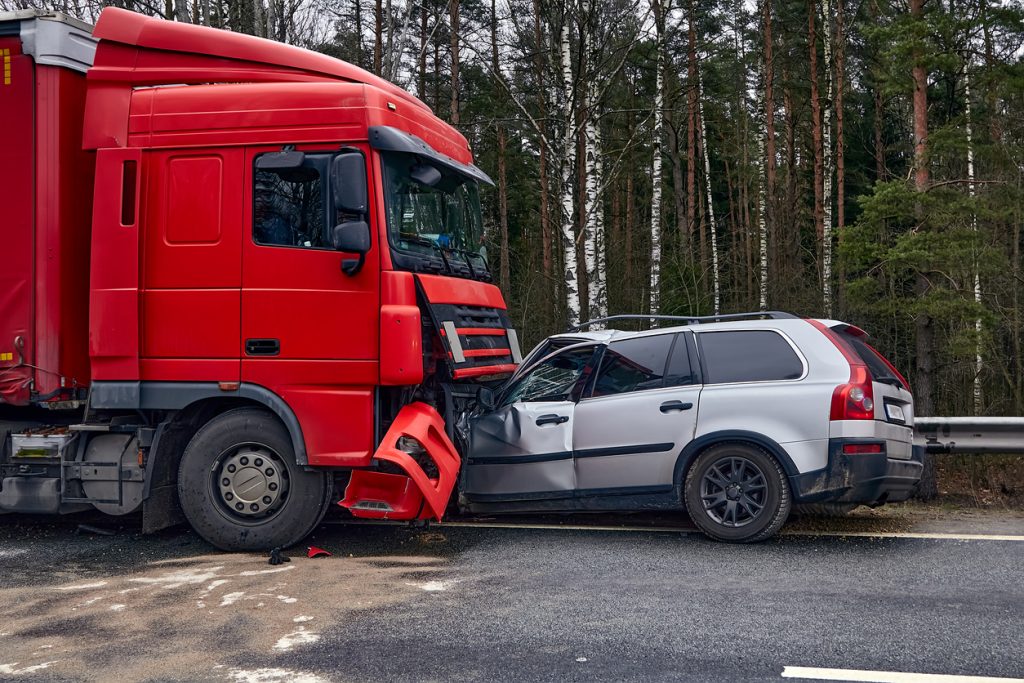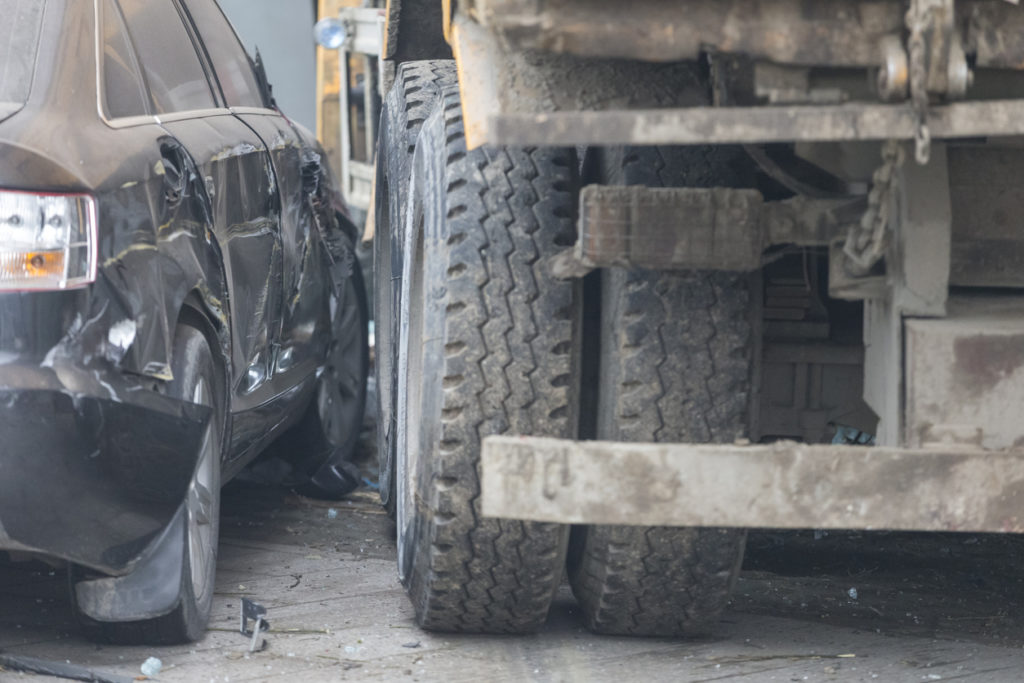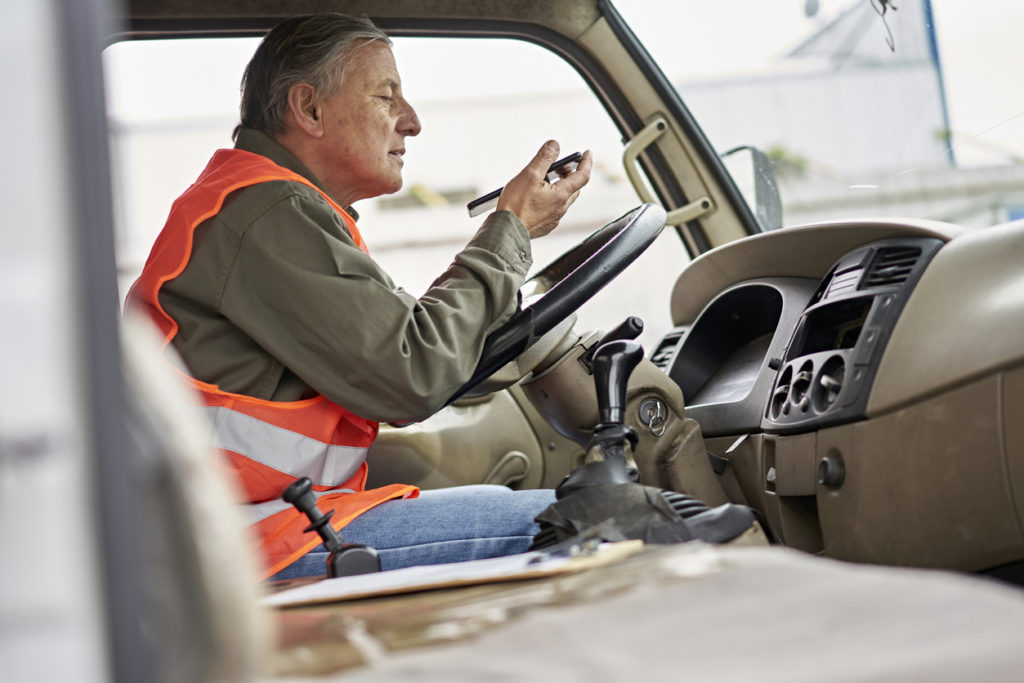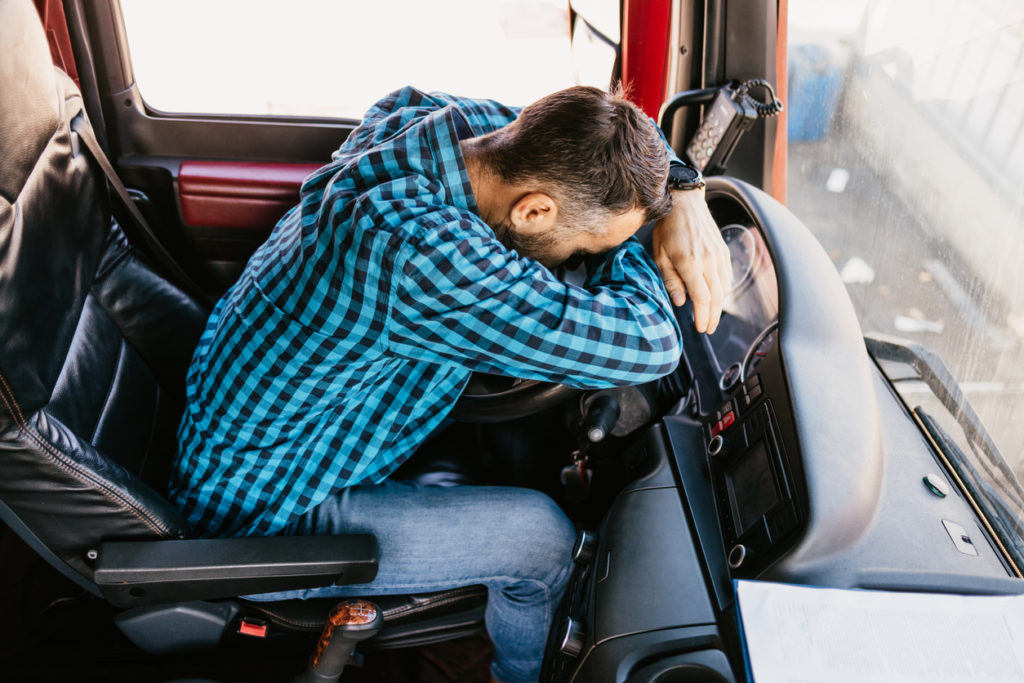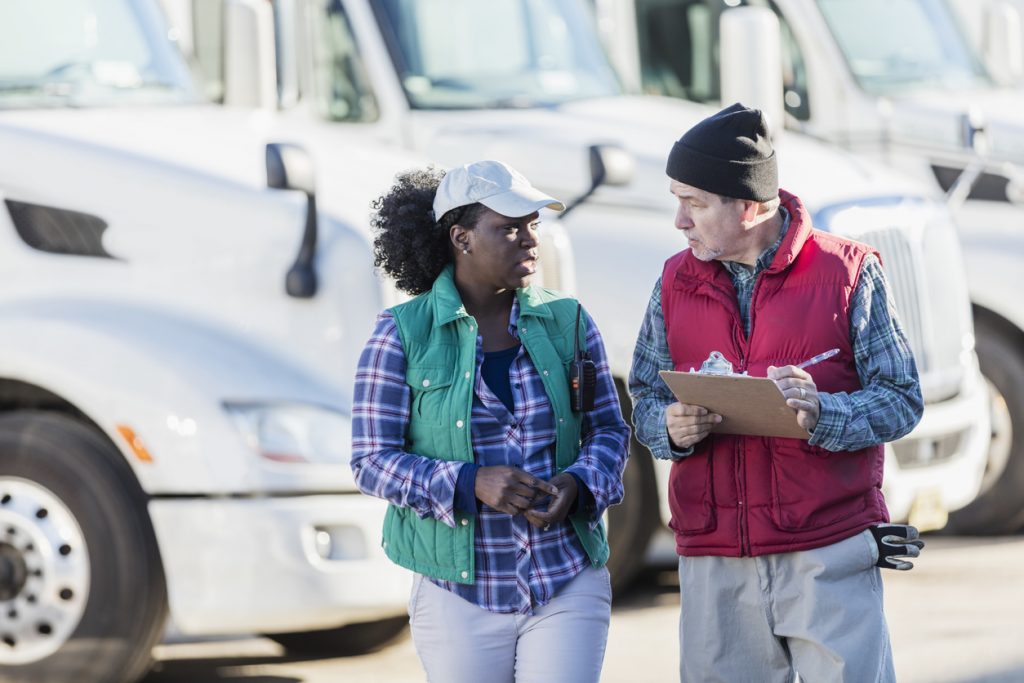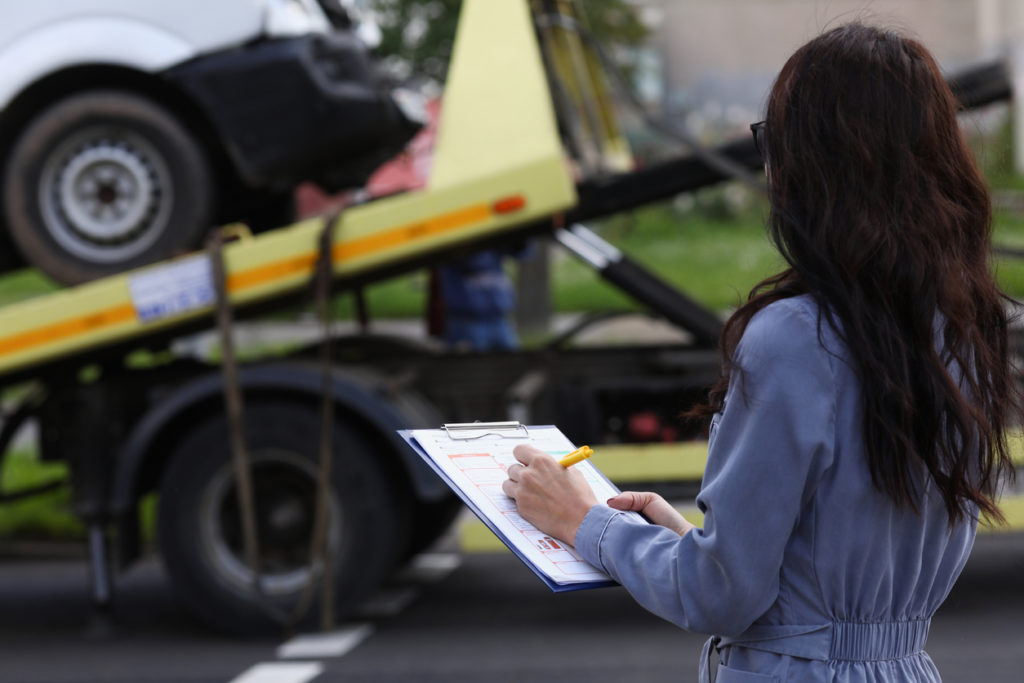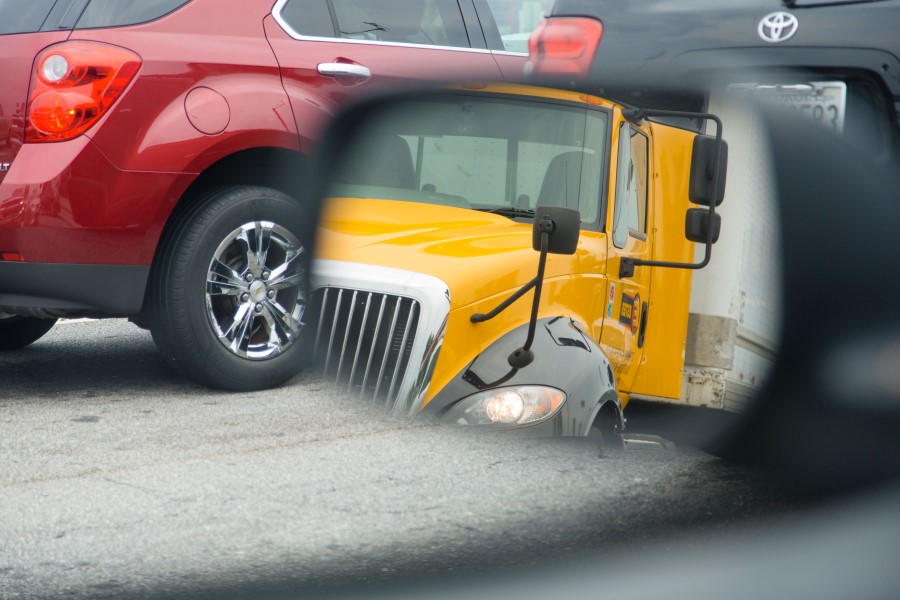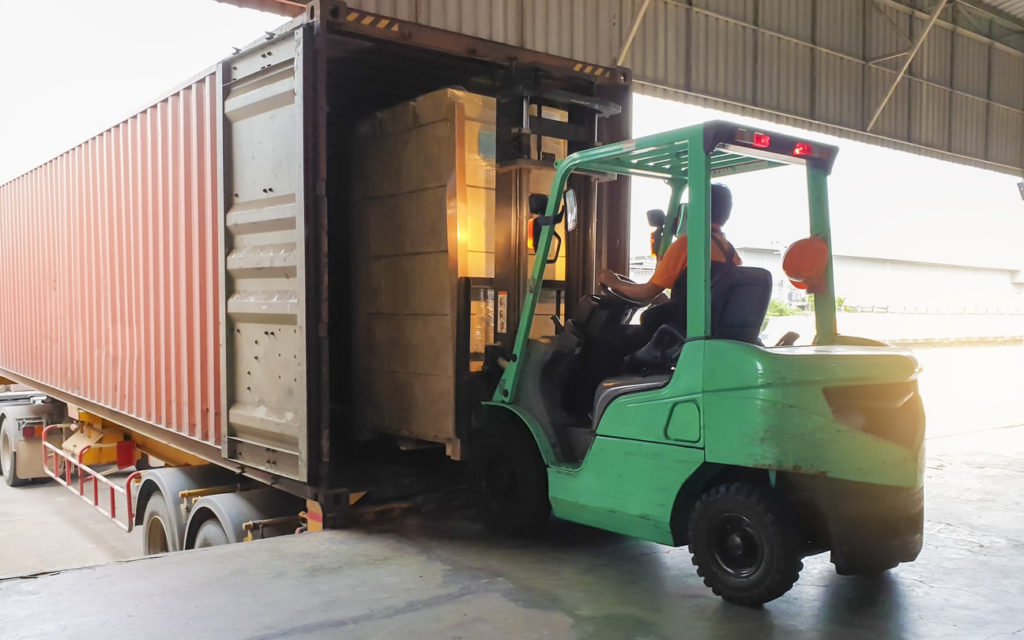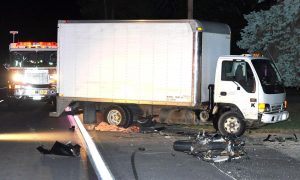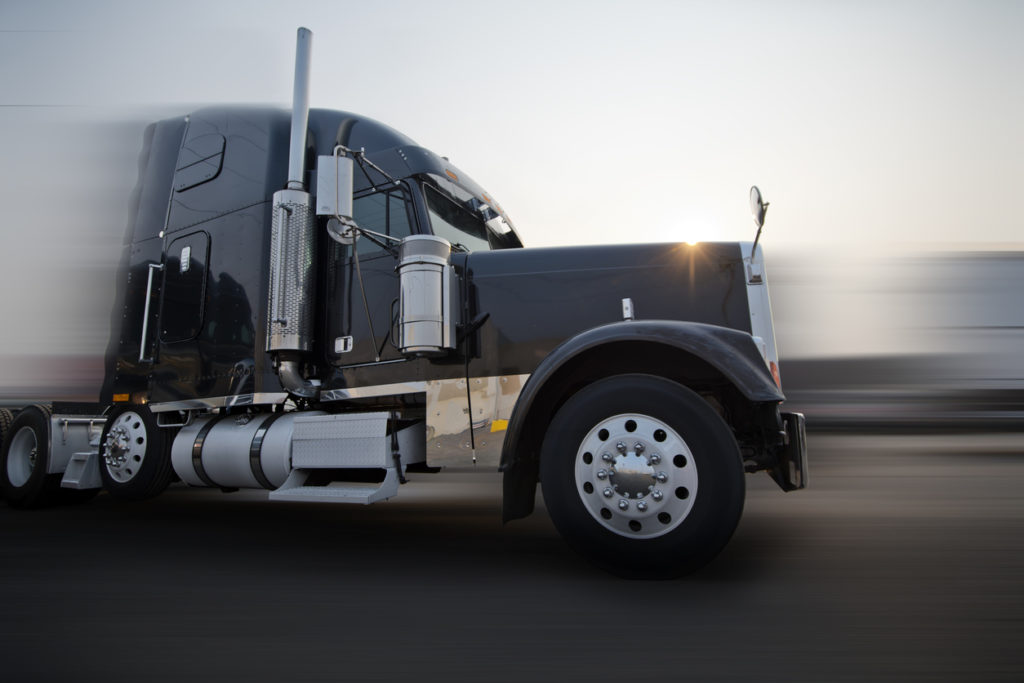
$100,000
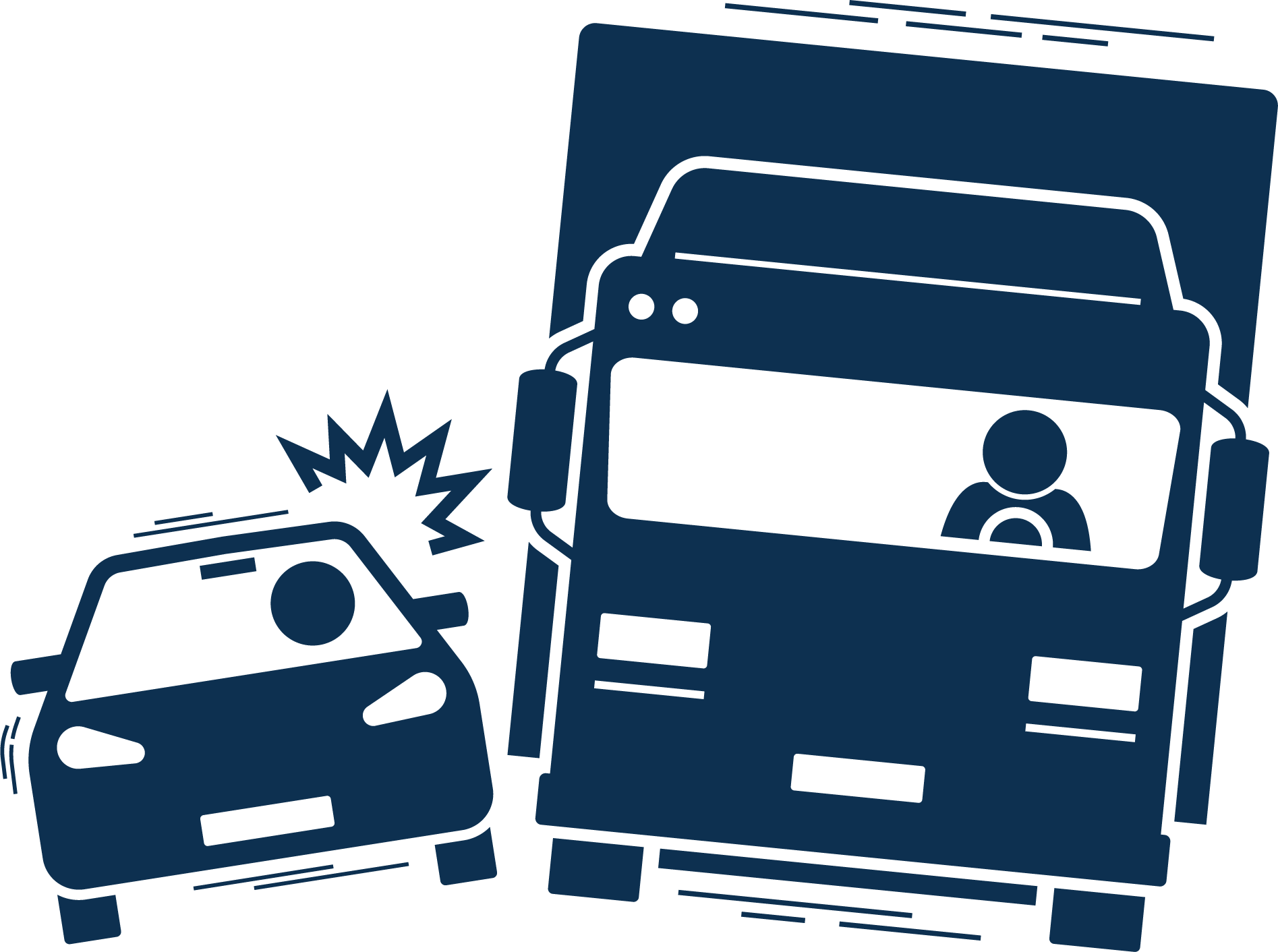
$275,000
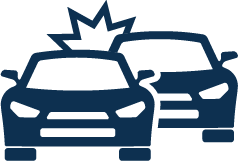
$140,000
Trucking Cases We Handle
Our truck accident law firm has extensive experience in handling local semi-truck and tractor-trailer accidents.
Specialized knowledge. Interstate trucking cases require knowledge of Motor Carrier Safety Rules and Regulations, electronic logging and data monitoring, business and record-keeping practices, layers of insurance policies and protection, and document discovery. Lawyers who do not practice truck accident law may be unfamiliar or less familiar with these important records.

18-wheeler and big-rig accidents. With interstates 75 (I-75), 85 (I-85), 20 (I-20), 285 (I-285), and 675 (I-675) forming a hub in and near Clayton County, the area has a high number of serious truck accidents. Each year, we handle several serious interstate-highway accidents in this area.
Our office is especially qualified and able to investigate truck accidents quickly. We can get you on the road toward financial compensation before important evidence can disappear forever.
Trucking Injuries We Handle
Throughout more than 29 years of handling truck accident cases, our firm has gained experience working on these injuries and more:
- Head injuries
- Paralysis
- Wrongful death
- Back and neck injuries
- Disk herniations
- Internal injuries
- Facial injuries
- Broken bones
- Many other injuries
How are damages calculated in a trucking accident case?
Damages you can recover are broken down into a few common categories:
When you’re hurt, it’s important for your doctor and others who have seen the injury to give their opinions about how long-lasting or serious an impact this has had on life. We take care of getting all medical records so that we can do just exactly what needs done in order find out if there are any lasting effects from our accident; such as reviewing reports with treating doctors or overhearing testimony at trial (if necessary).
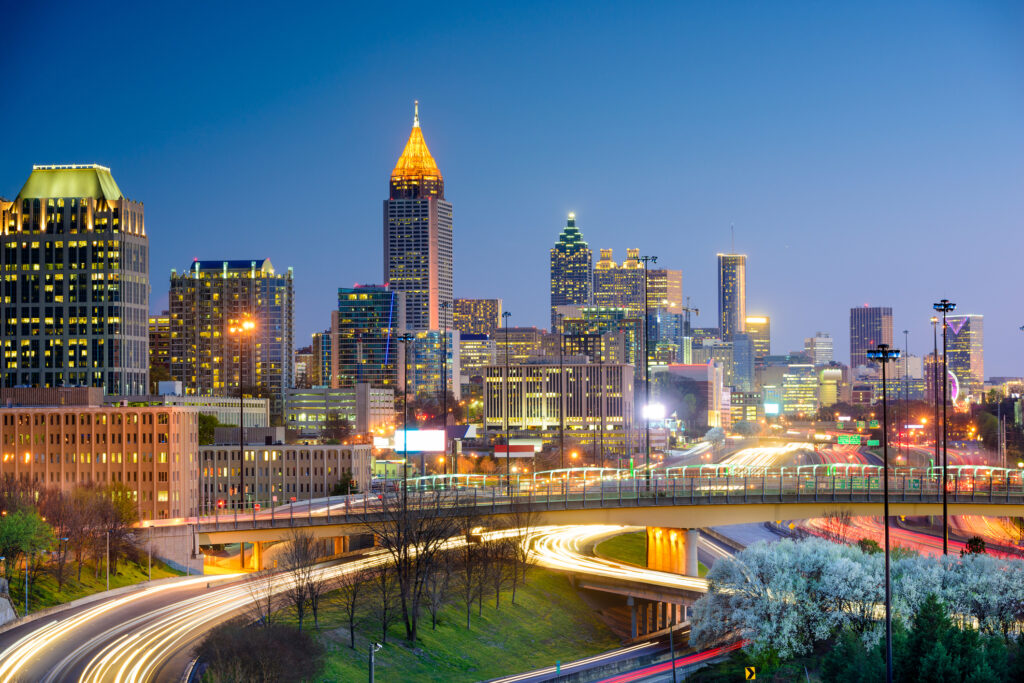
Special Factors Involved in Truck Accident Cases
You are best served by lawyers who routinely handle truck accident cases.
Truck accidents can be just as deadly, but they have a variety of factors that make them more complex than car wrecks. Unlike cars where speed often determines who lives and dies in an accident; with trucks it’s usually driver error — although some vehicles may require special permits to operate on public roads!
What are the legally-required truck insurance limits?
Trucking companies that operate in more than one state, known as interstate trucking, must typically have at least $750,000 in bodily injury, or liability, insurance. As of June 2020, Congress is considering increasing the minimum required trucking insurance to $2 million.

How We Prove the Negligent Cause of A Truck Accident
Trucking accident claims and cases are based on fault. However, the root cause of a truck accident involving a tractor-trailer or large box or delivery truck may be deeper than simply proving a truck driver made a mistake and crashed into you.
Thorough investigation may show other types of negligence, such as a careless trucking company or third party, which also contributed to the accident. This is what is known as a “system failure.”
Jonesboro’s Roads and Highways Have a Trucking Problem
Because we are located near the world’s largest airport and four major interstate highways, many large trucking and transport companies are located around our area. This means that Jonesboro, its interstate highways, and state highways, such as 19/41, Highway 401, and Highway 23 are filled with a great number of big-rig and semi-truck traffic.
Many serious crashes happen because drivers and companies are unfamiliar with the highways and exit-ramps. A typical trucking accident may occur at the Cloverleaf exits on Interstate 75 and I-285 in Jonesboro. Large trucks often run over or rear-end cars and pickup trucks. Other wrecks, such as rollovers or tip-overs occur from taking a ramp too fast. Accidents involving serious and catastrophic injuries take place on a weekly basis near Jonesboro. They are often the result of truck-driver error, negligent training, or poorly maintained brakes.

Jonesboro, Georgia, Trucking Laws
In addition to state regulations and the Federal Motor Carrier Safety Act, the City of Jonesboro also its own laws and ordinances that commercial vehicles and trucks must follow.
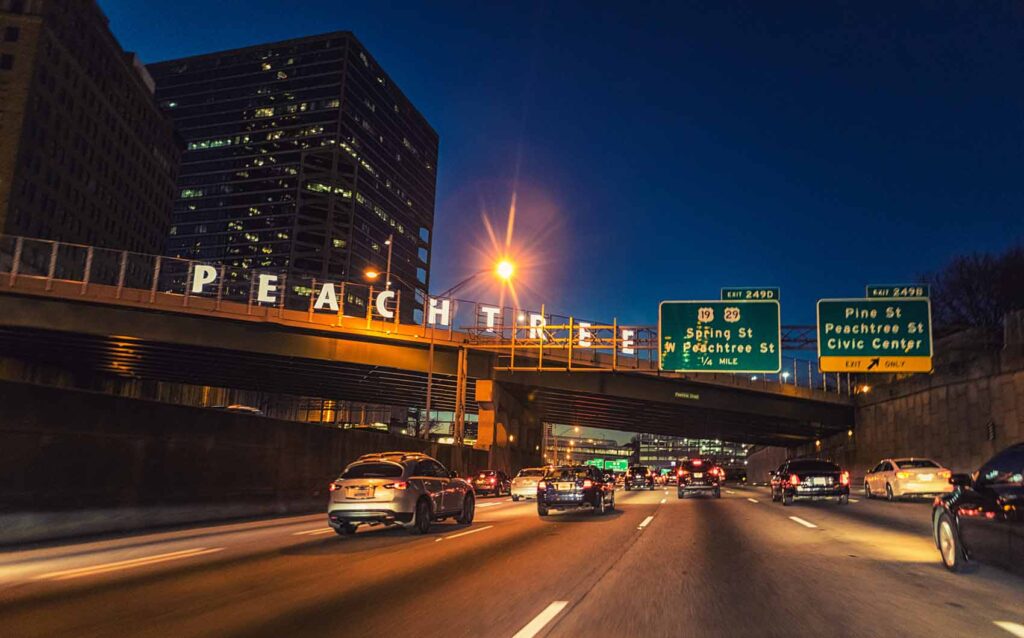
- Uniform rules of the road. Jonesboro has adopted all of Georgia’s uniform rules of the road for the operation of trucks and other commercial vehicles. City Code, Sec. (74-41)
- Truck, defined. The City of Jonesboro defines every motor vehicle that has six or more wheels and is designed, used, or maintained primarily for the transport of property as a “truck.” (74-91)
- Truck routes. The city has established certain truck routes to redirect truck traffic away from city streets. (Sec. 74-94) However, the city generally does not enforce its ordinances to interfere with the normal delivery of goods and services. (74-92)
- Trucks with more than six wheels. Trucks with over six wheels are prohibited on certain streets inside of the City of Jonesboro. Such streets are marked with traffic control devices. (74-95)
- Truck and commercial vehicle storage. Trucks may not be stored overnight in a front yard of an M-1 district or light industrial district. Commercial vehicles of all types generally may not be parked in a residential district, except under certain conditions. (86-108) and (Sec. 74-3)
How We Investigate and Work on Jonesboro-Area Trucking Accident Cases
Your first call to our law office. Contact our Jonesboro law firm for a free consultation regarding any 18-wheeler, tractor-trailer, semi-truck, or other commercial vehicle accident. We will consult with you on the phone or in-person at no charge.
Your information is confidential. Anything you tell us, and our advice to you, is totally confidential. We abide by the code of professional responsibility and ethics not to reveal anything you say to us.
Our legal advice to you: We will advise you about the law, consult about your injuries and the potential value of your case. If we decide to work together, our firm will immediately begin to investigate.
Sympathy, caring, and fast action: Injuries are often much more serious in a truck accident than a typical car accident. During your consultation, we’ll provide a clear plan of action and advice about how to deal with your injuries, medical care, and employment. We will also explain how your case will be investigated. Our firm will use our local relationships with Jonesboro and Clayton County police, medical offices, first responders, and accident reconstruction experts to get your case onto a solid foundation.
There may be several at-fault defendants in a truck crash case. Typically, these include the driver, the truck’s owner or the trucking company, the company that hired or employed the driver, any company that negligently maintained the truck, other drivers that contributed to the crash, and sometimes a negligent car or truck manufacturer.
Sometimes self-insured trucking companies or their insurance carriers will tempt accident victims with a quick-settlement offer. For instance, they may offer to pay your medical bills right away. Most likely, they are trying to get you to settle and agree to accept full payment before you can hire a lawyer who may tell you the case is worth much more. Should this happen, we recommend speaking with a truck accident attorney to determine whether quick settlement is in your best interest. (Hint … it usually is not.)
You may have heard of the “guilty beyond a reasonable doubt” standard. That is the standard or burden of proof in a criminal case. Trucking and commercial vehicle injury accidents are civil cases. The burden of proof in a civil case is “preponderance” or “more likely than not,” which is an easier standard to meet.
Commercial vehicles typically carry $100,000 to well over $1 million worth of insurance. However, in the most serious cases, unless there is an excess or umbrella policy, even this may not be enough. Therefore, it is important to review other possible sources of insurance. These can include parent trucking companies, businesses that hired or loaded the truck, companies that maintained the truck, and other individuals or companies that contributed to the wreck, such as roadway defects or other drivers.
As in any other type of accident, this depends on a few things. First, was the truck driver at fault? If so, was the driver on the job when the wreck happened? Also, was the driver an employee of a trucking company or an independent contractor? In some cases, trucking companies or freight brokers may not be held accountable for an independent driver’s actions. The answer to this question can be complicated. It’s difficult to answer without a detailed investigation into the nature of the business relationship, the lease, the contract, and other terms of the trucker’s employment.
In most cases, yes! Almost all modern tractors and commercial vehicles are equipped with a device known as an event data recorder, or “black box”. This recorder saves data about the vehicle, including speed, braking, and steering of the truck at and prior to the time of a crash. Most modern cars have a similar recorder onboard as well. Data from these devices can provide information about the cause of a crash.
In Georgia, you will have up to two years to file a lawsuit under O.C.G.A. 9-3-33. This is known as the personal injury statute of limitations. If your truck accident was many months ago, it might not be too late. Even though it is best to begin investigating right away, your attorney can still get the police report, SCRT report, and other records that may prove your case.
This varies greatly from case to case. Generally speaking, if it is possible to receive a fair settlement or the limits of available insurance, then filing suit may not be necessary. However, in many trucking cases, the full extent of insurance or the circumstances leading up to the collision cannot be fully known without filing suit and using the power of the court to compel information from the trucker and company.
Most trucking cases, even when suit is filed, are settled without a trial. And, statistics show that larger settlements are more likely after suit has been filed and the trucker, the trucking company, and the insurance company are facing the threat of a trial.
Things You May Want to Know When Choosing a Truck Accident Lawyer in Jonesboro, GA
Selecting the best attorney matters. Local experience matters.
Some advertising law firms you may see are “national” firms located many miles or states away from where your crash happened. Firms advertising on TV with catchy slogans like “Call me (name your state)” or “fighting the powerful” may not even be headquartered in Georgia. When a case involves a commercial truck, bus, or van, fast investigation and local knowledge are often necessary. This may not be possible or desirable with a distant or high-volume law firm.
The Millar Law Firm has been in the area for over a quarter-century. Our offices are located near some of the busiest interstates, roads, and highways in Georgia. We regularly (and successfully) handle trucking and bus accident cases. We can respond quickly and effectively when large truck, big-rig, and other serious crashes happen. Put local knowledge and actual resources – not advertising hype – to work for you.


How can a South Atlanta truck accident attorney help you and your family?
We handle local and state-wide truck accident cases near you on a daily basis. Investigating a truck accident is not as simple as getting a police report and contacting the insurance company. Truck wrecks often involve multiple law enforcement and government regulatory departments. If you are not familiar with investigating and finding the relevant information, this can harm your case.
Additionally, knowing who to make your claim against and who to sue is critical. Understanding who you can sue and identifying all the potential defendants, such as the trucking company, parent companies, and brokers, are critical skills.
Experience and Focus: The Personal Injury Cases Handled by Our Jonesboro Attorneys

Let our attorneys fight the insurance and trucking company, so you don’t have to
We are on your side. Our job is to get you as much money as possible to take care of your medical, physical, and emotional needs after a truck accident.
You need a trustworthy truck accident attorney to look out for your rights and best interests, above all. The insurance company is in business to profit by paying as little as possible on your claim. We handle Jonesboro trucking and commercial accident cases on a contingency fee basis. This means our interests are the same as yours: To help you recover as much monetary compensation as possible.
Perhaps the best thing about hiring a local personal injury trucking accident attorney is knowing that you have a team on your side and close at hand. We want you to focus on other things, like recovering from your injuries. Our office will take this burden off you, and keep you updated as your truck crash case progresses.


